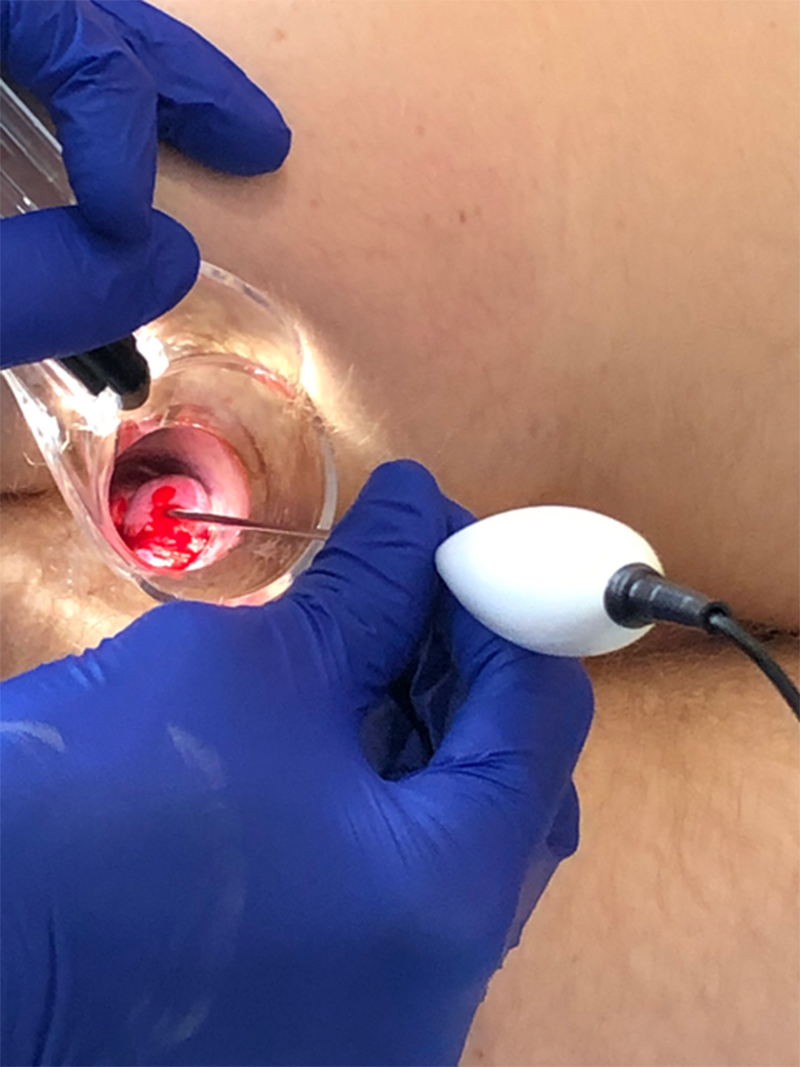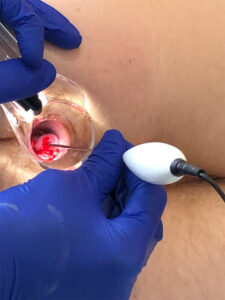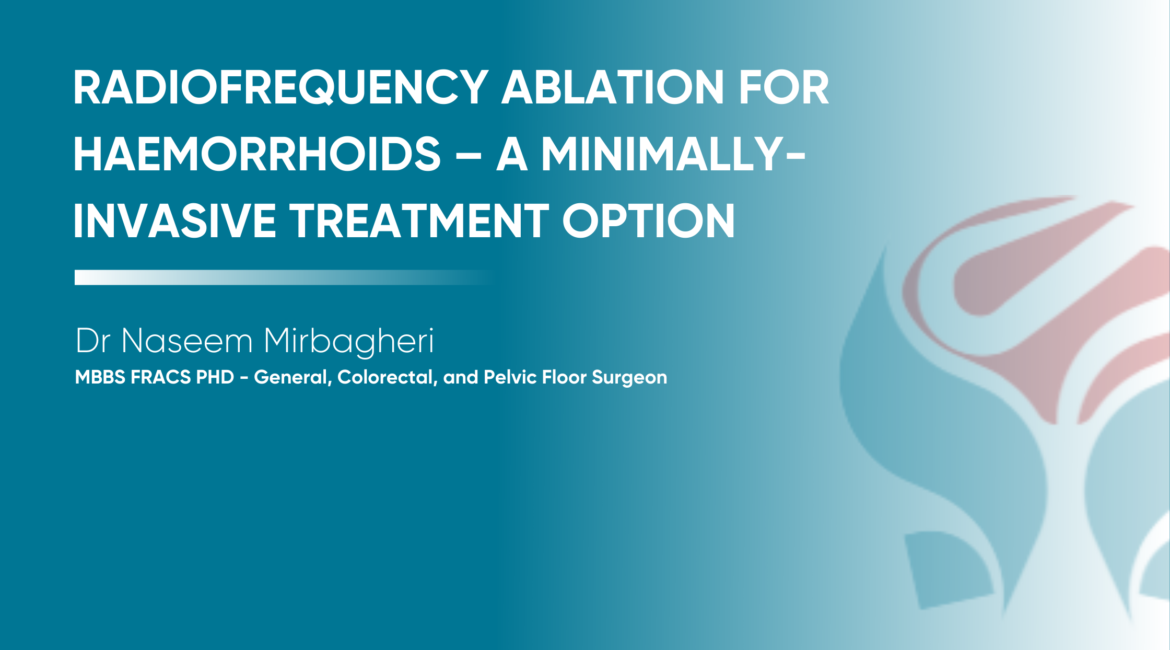
One of the most rewarding aspects of working in the medical field is the continual innovations that improve patient outcomes and experiences. One of these is radiofrequency ablation, which is now used in the treatment of haemorrhoids by your colorectal surgeon in Melbourne. Here’s some insight into this treatment process and how this technology works.
What is Radiofrequency Ablation?
This technology, also called rhizotomy, is not that new – it has been around since the 1990s, and has been used extensively to reduce or prevent pain by blocking pain signals to receptors in the brain. As a result, it has been used extensively in the treatment of chronic back pain, neck pain and joint pain. It is also used in cardiology, varicose vein treatment and in ENT for sleep apnoea. The goal of this treatment is to shrink and destroy unwanted tissue in a safe, effective and painless manner.
Today, it is gaining popularity in other areas of medical treatment, including as a non-surgical treatment for internal haemorrhoids .
How is Radiofrequency Ablation Used to Treat Haemorrhoids?
In this minimally-invasive procedure, a small plastic tube called a ‘proctoscopy’ is inserted to allow your colorectal surgeon to view the haemorrhoids, alongside a very thin surgical probe that is inserted into the haemorrhoid itself. An electric current is then sent through the probe using high-frequency radio waves. This produces heat that cuts off the blood supply to the haemorrhoid without damaging the surrounding healthy tissue. Without this blood supply, the haemorrhoid shrinks and detaches from the anal wall. More importantly, it causes scarring of tissue above the haemorrhoid that can lift the haemorrhoid to its normal position. It is not a painful procedure; the only discomfort patients may feel is from the tube inserted to view the haemorrhoids, as well as a feeling of heat from the radiofrequency waves.
What are the Benefits of Radiofrequency Ablation?
It is a non-invasive treatment that offers significant benefits to patients, including minimal recovery time. The procedure is usually performed as an outpatient procedure (so there’s no need for a hospital stay), and risks of infection and complications are far lower than invasive surgical options. It’s a very quick procedure performed under local anaesthetic, and multiple internal haemorrhoids can be treated in one session.
With radiofrequency ablation, patients tend to experience rapid relief from symptoms, little to no bleeding, and a fast return to normal daily life. For patients concerned about pain or recovery from surgery or where surgery is not recommended due to health concerns, this haemorrhoid treatment offers a simpler, more accessible and cost-effective option. However, like any other ‘haemorrhoid preserving’ procedures, such as banding, this intervention is also associated with high risk of recurrence. Up to 50% may have recurrence of their symptoms at some stage.
Am I a Candidate for Haemorrhoid Radiofrequency Ablation?
Radiofrequency ablation is usually performed on patients with multiple smaller or early stage (grades 1-3) internal haemorrhoids, although some success has been seen with larger grade 4 haemorrhoids, where treatment can reduce the size of the haemorrhoid and improve symptoms. However, further haemorrhoid surgery may be required for later stage haemorrhoids depending on the severity of your case.
To prepare for radiofrequency ablation, you will have to follow the guidelines set out by your colorectal surgeon. In general, minimal preparation is required and it is a ‘walk in, walk out’ treatment. This will all be discussed with you in detail in consultations before the procedure where you can ask any questions you may have and learn more about the process.
If you would like to find out if you are a good candidate for this procedure, it’s best to speak directly to a colorectal surgeon who can fully evaluate your case and give you expert advice to guide your treatment.
See figure below showing a patient undergoing radiofrequency ablation of a haemorrhoid pedicle.

Radiofrequency Ablation in Melbourne
Dr. Naseem is one of the only colorectal surgeons in Melbourne currently offering this non-invasive treatment option as an in-clinic procedure for patients with haemorrhoids. Contact the clinic today to get more information or schedule an appointment for an assessment for radiofrequency ablation today.

